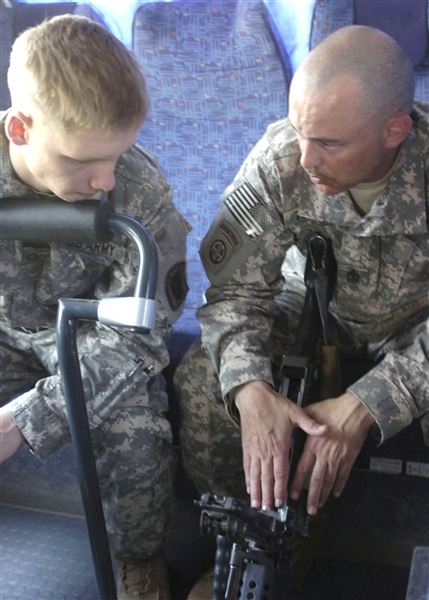WASHINGTON, July 25, 2011 — Steps to curb transnational organized crime, as addressed in a White House initiative announced today, are important to severing funding to terrorists, the chairman of the Joint Chiefs of Staff said today.
Transnational crime was one of several questions Navy Adm. Mike Mullen answered as part of a news briefing with the Foreign Press Center here. The foreign journalists’ questions touched on U.S. military relationships around the world, NATO actions in Libya and missile defense.
Asked by a Moroccan journalist about transnational crime in Africa, Mullen said, “If I was going to pick one area in Africa, it’s been the flow of drugs, literally across the Atlantic [Ocean] that lands in North Africa and flows into Europe. The envelope, if you will, around it is transnational crime, and it’s something I’ve been concerned about for years.”
Such organized crime, Mullen added, “is not just about drugs, … it’s immigration, it’s people, it’s weapons.”
Transnational organized crime has been a multitrillion-dollar per year business “that ties in very nicely with the support of terrorists,” he said. “I’m extremely concerned about that. Taking steps to try to address that trend is an incredibly important step forward.”
White House officials today sent to Congress a report, “Strategy to Combat Transnational Organized Crime: Addressing Converging Threats to National Security.”
In answer to questions about the NATO military campaign in Libya, Mullen said many countries are working together in a way he believes will lead to the removal of Libyan leader Moammar Gadhafi from power.
Mullen acknowledged that Gadhafi’s forces have adjusted to NATO’s opposition tactics, “and that’s not a surprise.”
But, the chairman said, “In the long run, it’s a strategy which will work” with respect to removing Gadhafi from power.
There has been no decision by the United States to arm the Libyan opposition movement, Mullen said, and NATO forces have succeeded in chipping away at Gadhafi’s forces through attrition.
Asked about U.S. military-to-military relations with China, and how it is affected by U.S. support for Taiwan, Mullen said he expects a presidential decision by Oct. 1 as to whether the United States will again sell arms to Taiwan, risking its relationship with China. It’s an issue he has discussed recently with his Chinese counterpart, Gen. Chen Bingde, he said.
“Clearly, the Chinese would strongly prefer we stop doing this,” he said. “My point is, we have a relationship and a responsibility, and there are legal responsibilities in my country to support the Taiwan Relations Act. … I would hope that in the future when we come up against these very difficult issues, we are able to sustain the military relations that have been renewed and have the ability to communicate with each other. Terminating that, even temporarily, has a significant downside for stability in the region.”
Asked by a Pakistani journalist about U.S. military relations with Pakistan, the chairman said there is a “recalibrating” of relations there, as reflected in a recent decision to defer $800 million in U.S. funding to the Pakistani military.
Still, he said U.S. funding continues to flow freely for civilian assistance in Pakistan and he believes both sides want to continue their relationship to sustain stability in the region.
“We are in a very difficult time right now,” he said. “That said, I don’t believe we’re close to severing [relations], and we shouldn’t do that. Sustaining this relationship is critical. We’ve been through difficult times with them in the past and we should see this difficult time through in sustaining this relationship over time.”
Asked about missile defense in Europe, the admiral said, “We’re in discussions with an awful lot of countries,” and much is unresolved in terms of time, place and cost.
Also, he said, “vigorous discussion” between U.S. and Russian officials over missile defense is ongoing. “There are areas where we agree and disagree, but we’re going to continue to work on it.”
Source:
U.S. Department of Defense
Office of the Assistant Secretary of Defense (Public Affairs)

 von
von 
